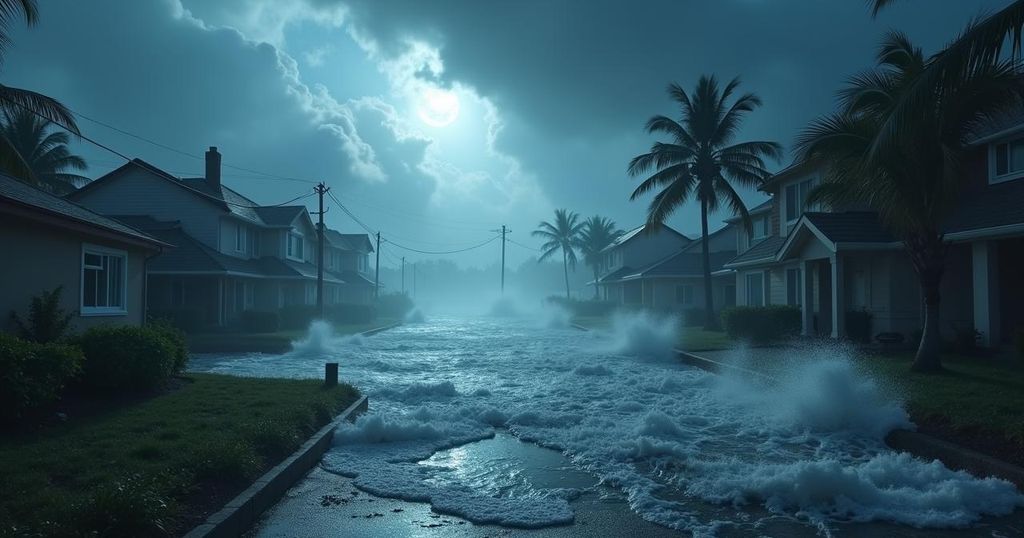Navigating the Hurricane: Climate Denial and Political Discourse in the U.S. and India

The article examines the political discourse surrounding recent hurricanes in the U.S., focusing on the denial of climate change by some conservatives and the spread of misinformation. It contrasts this with India’s strong disaster management efforts during cyclones, while also critiquing environmentally damaging government projects in India. The analysis highlights the necessity of addressing climate change comprehensively to prevent future calamities.
The recent onslaught of hurricanes, namely Helene and Milton, has sparked intense political discourse in the United States. As the presidential elections approach, former President Donald Trump has vehemently criticized the Biden administration’s handling of rescue and relief operations post-hurricane. However, amid these turbulent discussions, a surge of misinformation has proliferated, primarily through Trump’s supporters, who have advanced baseless theories suggesting that the administration is manipulating weather patterns to target Republican regions. These claims have been further compounded by AI-generated images designed to portray a façade of governmental negligence. At the core of this dilemma lies the persistent denial of climate change by many conservatives, including Trump supporters. Scientific research unequivocally indicates that climate change intensifies the severity and rainfall of hurricanes. Nevertheless, the substantial financial influence of the oil industry continues to propagate the narrative that storm damages are attributable solely to governmental incompetence rather than climate realities. In contrast, India demonstrates a commendable disaster response strategy, particularly during cyclones. The measures taken during cyclone Nisarga in 2020, where over 100,000 individuals were evacuated, highlight impressive organizational planning. Similarly, during cyclone Fani in 2019, a staggering 1.2 million people were relocated within a mere 48 hours. Unlike in the United States, the discourse surrounding climate change in India is less divisive. Yet, despite this effective disaster management, the Indian government has approved numerous environmentally detrimental projects, such as deforestation initiatives in the Aravallis and the controversial Char Dham Pariyojana. While Indian authorities may excel in disaster mitigation, they also contribute to the escalating climate crisis that precipitates such natural calamities.
The article discusses the polarized political landscape in the United States concerning climate change, particularly in the context of recent hurricanes. It contrasts the political fallout and misinformation trends following hurricanes Helene and Milton with India’s effective disaster management strategies and persistent environmental challenges. Furthermore, it highlights the intersection of climate change denial in the U.S. political framework and its implications for disaster response efficacy versus the Indian approach, which, while efficient in evacuation and recovery, does not address the underlying issues contributing to climate change.
In summary, the discourse surrounding the recent hurricanes has revealed significant political division in the United States regarding climate change, exacerbated by misinformation and conspiracy theories. While effective disaster response measures in India offer a glimpse of potential positive action, the ongoing approval of environmentally harmful projects by Indian authorities underscores a need for a holistic approach to climate action. Addressing the root causes of climate change is essential to preventing future disasters, both in the U.S. and India.
Original Source: timesofindia.indiatimes.com






